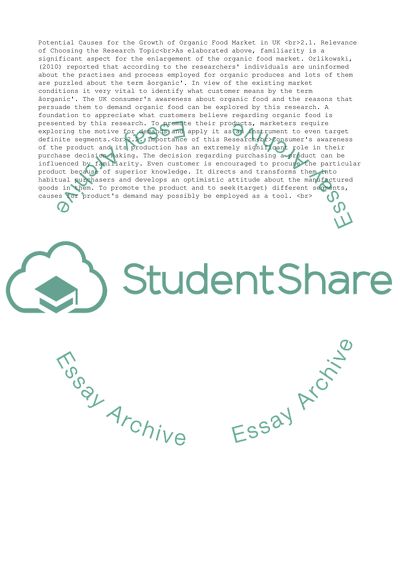Cite this document
(“Potential Causes for the Growth of Organic Food Market in UK Dissertation”, n.d.)
Potential Causes for the Growth of Organic Food Market in UK Dissertation. Retrieved from https://studentshare.org/business/1700322-potential-causes-for-the-growth-of-organic-food-market-in-uk-
Potential Causes for the Growth of Organic Food Market in UK Dissertation. Retrieved from https://studentshare.org/business/1700322-potential-causes-for-the-growth-of-organic-food-market-in-uk-
(Potential Causes for the Growth of Organic Food Market in UK Dissertation)
Potential Causes for the Growth of Organic Food Market in UK Dissertation. https://studentshare.org/business/1700322-potential-causes-for-the-growth-of-organic-food-market-in-uk-.
Potential Causes for the Growth of Organic Food Market in UK Dissertation. https://studentshare.org/business/1700322-potential-causes-for-the-growth-of-organic-food-market-in-uk-.
“Potential Causes for the Growth of Organic Food Market in UK Dissertation”, n.d. https://studentshare.org/business/1700322-potential-causes-for-the-growth-of-organic-food-market-in-uk-.


